Live to shred: how Jet Set Radio influenced a gaming subculture
As the spiritual successor Bomb Rush Cyberfunk draws near, let's look back on how Jet Set Radio changed the game.
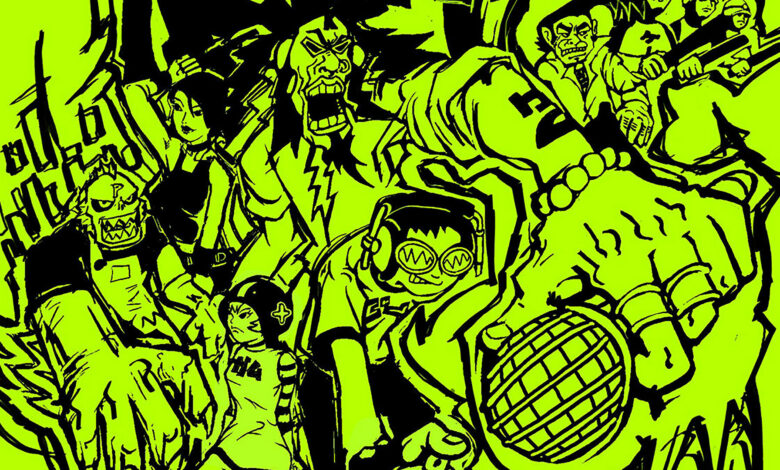
Back in the 1990s, SEGA epitomized the cool side of gaming. Whereas Nintendo felt safer and more approachable, SEGA and Sony focused more on the hardcore crowd with games targeted at older kids and teenagers. Franchises like Sonic the Hedgehog made it clear that SEGA had the in-your-face attitude that felt so prevalent before the turn of the millennium. And for many, no franchise hit that note harder than Jet Set Radio.
At a time when skating and extreme sports were all the rage, JSR came out to help define how skating games were meant to be made. Alongside titles like Tony Hawk’s Pro Skater, the game was a watershed moment in the then-mainstream skating movement.
And then, it was over. Despite a few releases over the following few years, the Jet Set Radio franchise fizzled out faster than you could say “surf’s up.”
Yet it has not been forgotten. Jet Set continues to leave its legacy, influencing a gaming subculture that is strong and alive today. The upcoming spiritual successor Bomb Rush Cyberfunk is a testament to this. Before that game launches this summer, let’s take a look at how Jet Set Radio remolded the sports game landscape.
Strap your gear on
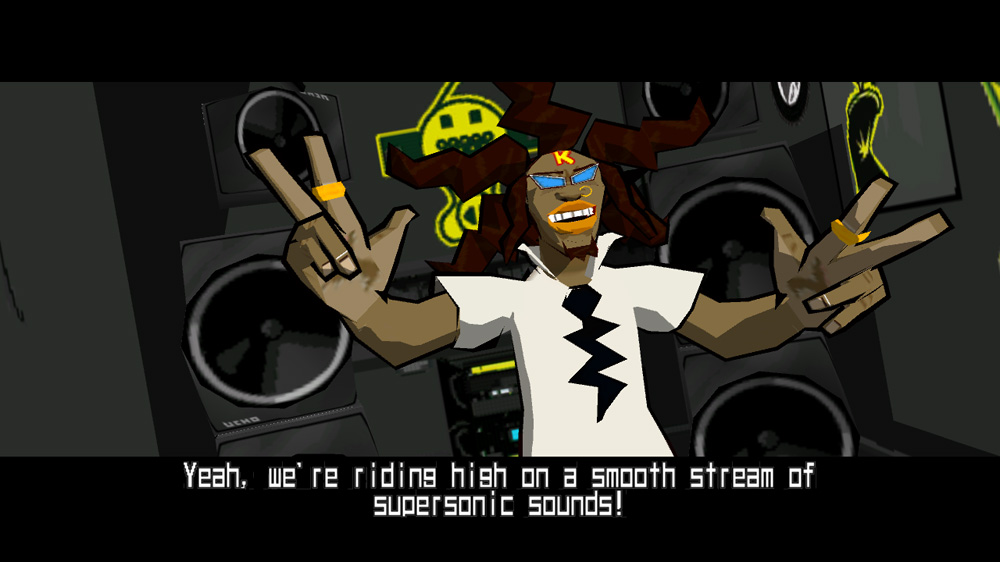
In many ways, Jet Set Radio was the right game at the right time. The skate culture had been evolving heavily since the 1970s; by the time the 90s came around, it was about to go full-on mainstream. The spirit of creativity, DIY nature, and camaraderie associated with skating appealed to 90s kids — as well as its rebellious, stick-it-to-the-man attitude.
Arguably, no one subject brought skating to the zenith of its popularity more than Tony Hawk’s Pro Skater. The game introduced skateboarding to so many households around the globe, and for the gaming industry, it opened up the floodgates to a whole new market. SEGA had even done so once before itself with the 1997 arcade title Top Skater.
That leads us to Jet Set Radio. Not necessarily influenced by THPS, it nonetheless took the same track in how it represented skating. With similar gameplay to other contemporary skating games, SEGA and its in-house development team Smilebit instead opted to make the game stand out with its visuals and attitude.
Cel-shaded graphics were a relatively new invention at the time, and JSR pushed them closer to the forefront than ever before. Taking inspiration from street art and games like Parappa the Rapper, Smilebit created a cartoonish and striking visual flair that made the game stick out to players back in the day.
Combined with a killer soundtrack, famously created by composer and DJ Hideki Naganuma, it was a recipe guaranteed for success.
Understand the concept of love
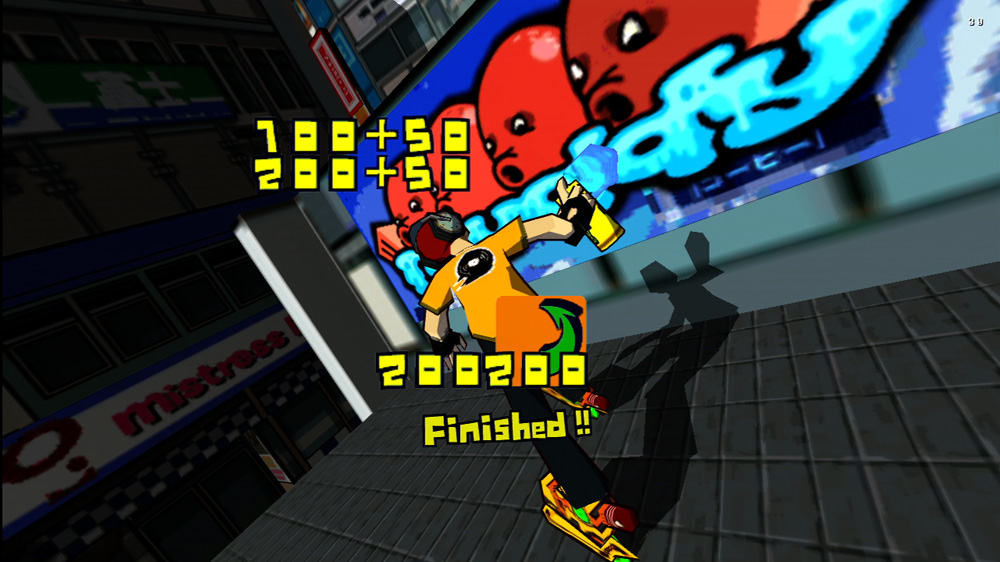
Almost instantly, Jet Set Radio was a hit with players and critics. The skating gameplay was fun, building combos was exhilarating, and most importantly, the aesthetics were a highlight.
Perhaps what drew in people the most was its representation of the skating and graffiti subcultures. Told through the lens of a gang of skaters fighting back against corrupt authorities, the story captured a sense of innocence, creativity, love, and rebellion. In essence, the perfect culmination of the spirit of the 90s.
Now, plenty of media took an anti-authoritarian tone. Jet Set Radio was nothing new in this regard. But told through a colorful, punk rock, and anime-esque lens was something wholly unique.
But maybe what really made JSR such a big success was that it was simply a fun and different game. This was long before the sports game genre earned the reputation of just being the same product pumped out every year with a different athlete on the cover. (Looking at you, EA Sports.) SEGA made something that felt like a revolution, something that might carry on forever.
Which it did — but not in the way fans hoped for.
When the Jet Set Radio wheels stop turning
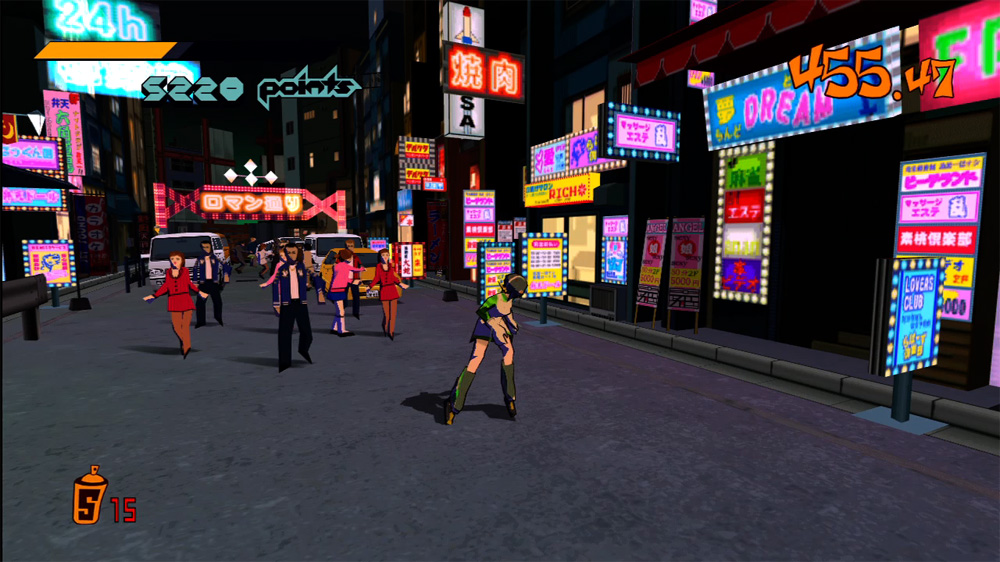
Following the original Dreamcast game’s release, SEGA produced two more Jet Set Radio titles. The first was a sequel for the Xbox, 2002’s Jet Set Radio Future. This game expanded the world and added a couple of gameplay features, but otherwise kept the system more or less intact. The second was a Game Boy Advance port of the original game, done by Vicarious Visions of Tony Hawk GBA game fame. (They’re now, of course, Blizzard Albany.)
All three JSR games were released within a period of four years. Yet while other franchises continued onward, Jet Set seemed to die just as quickly as it hit the scene.
Nobody really knows why SEGA has left JSR behind; most likely, it was simply a business decision after SEGA shifted priorities. It happens to a lot of beloved series, even if the fan demand for a sequel is there. The Jet Set crew would make sporadic appearances in SEGA crossover titles, but a new entry in the series just wasn’t in the cards.
So what happens when a beloved video game goes extinct? The fan works start pouring in.
Skate or die
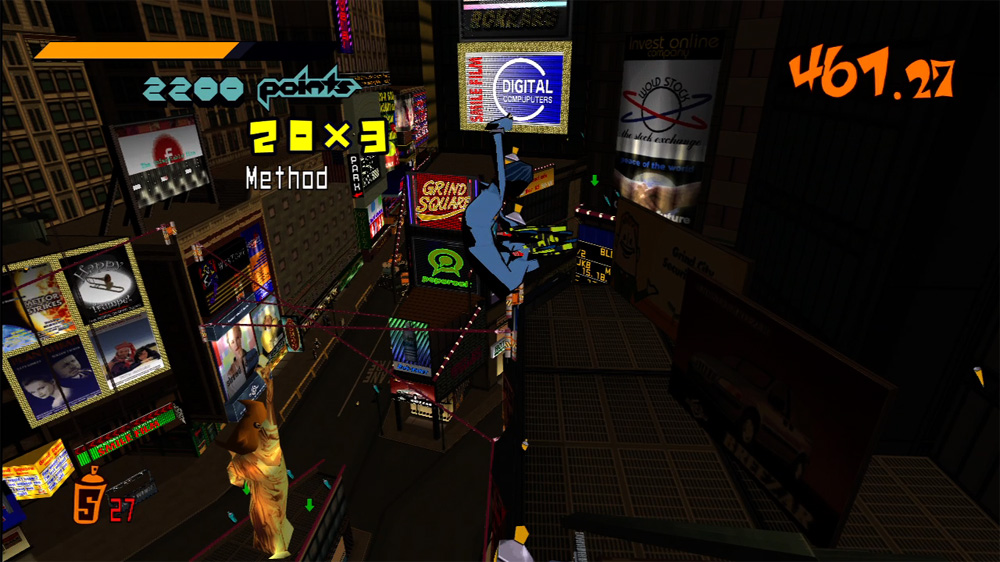
Even with Jet Set Radio all but confirmed to be dead for the time being, that doesn’t mean the spirit of the game has given up the ghost. Jet Set influenced many kids to pick up inline skating or start creating art, inspired by actions in the game.
While JSR had a unique visual style and soundtrack, it was also simple enough to be imitated. Games that followed in Jet Set’s footsteps like Hover and Lethal League sought to capture the same sleek, street-ready style with their aesthetics.
This, perhaps, is the true spark of Jet Set Radio. It was a game about youths who were inspired to take a stand against what was keeping them down. It’s ironic, then, that SEGA is keeping JSR down by refusing to let it grace our screens again. But that’s allowed new creators to pick things up where they left off.
While Jet Set Radio lays in limbo, Bomb Rush Cyberfunk takes center stage
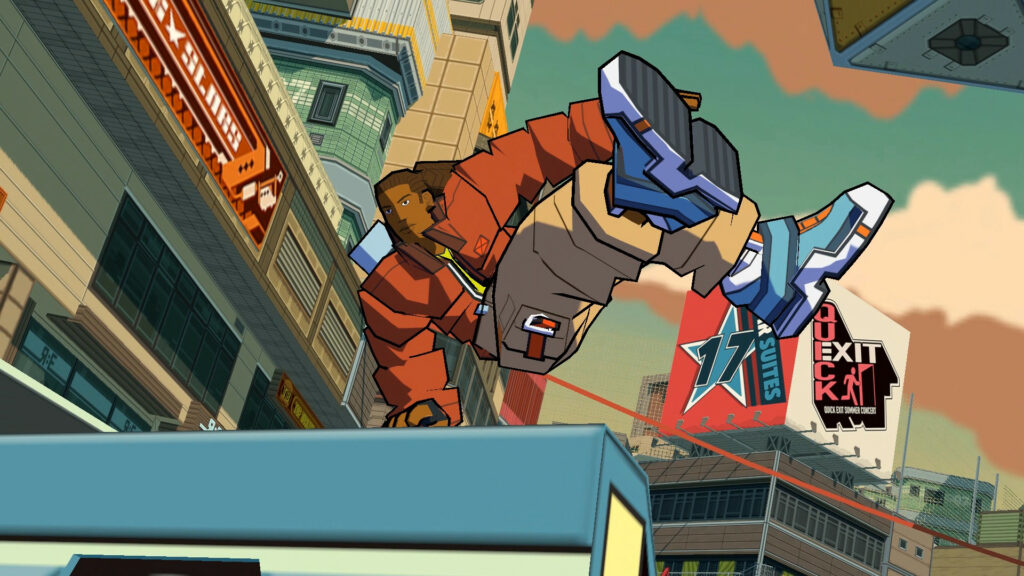
It’s a shame that Jet Set Radio has all but been totally forgotten by SEGA. They’ll remind us of it, sure, but as for a new game, JSR fans have been waiting for far too long.
Thankfully, the spiritual successor Bomb Rush Cyberfunk from Team Reptile hopes to fill that void. With the same gameplay, visual style, and sound, it’s set to keep the good times rolling when it launches this summer for the Nintendo Switch and PC via Steam.
What are your memories of playing Jet Set Radio? Let us know!

